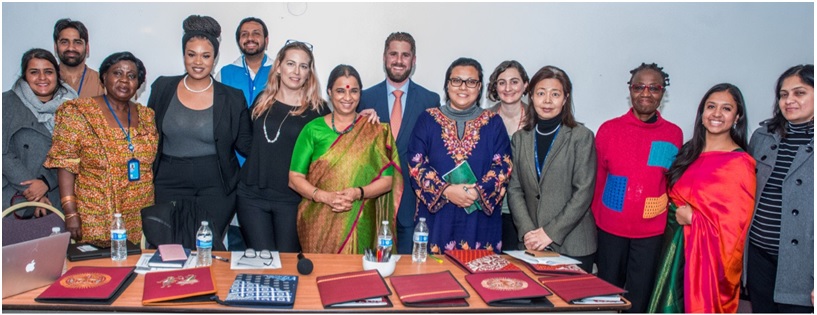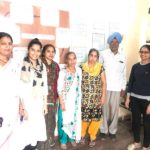Since 2015, Centre for Social Research initiated #SocialSurfing to create awareness on cyber etiquettes, cyber bullying, hate speech, online communication and counter speech. The team also visited educational institutions in rural areas of India and observed the potential that the users have in terms of procuring benefits from internet. To maximize the reach and build the capacities of women and girls in the communities, we need to increase the access in terms of infrastructure and digital knowledge both. Based on this, CSR India hosted a parallel event at the 62nd Commission on the Status of Women organized by UN Women. Titled as ‘Reaching The Unreachable – Last Mile Internet Connectivity to Rural Women Leaders’, the event was held on 16th March, 2018.
Commission on the Status of Women every year hosts thousands of global organizations working for women’s rights. It’s a conglomeration of all initiatives and conversations to further the charter of women’s rightsand demand their increased participation in all spheres.
Our team was in #CSW62 recently and organised a parallel event titled ‘Reaching the Unreachable- Last Mile Internet Connectivity to Rural Indian Woman’. @ranjanakumari @AmiFromIndia @arnikatweets @SheoranSprint @fromdorothy @NGO_CSW_NY @UN_CSW @IndiainNewYork pic.twitter.com/DP5qV5kR2a
— CSR (@CSR_India) March 21, 2018
Why Rural Women Leaders: The potential of rural communities has been untapped for too long and with the vision of a Digital India, we finally have platforms that rural women can use to their benefit. The increase in rural users will expand the digital commerce that the world will see welcoming a new era of the digital revolution. We are looking at the digital platforms as tools to amplify the voices of rural women and move towards a growing new nation of women leaders, the right to be heard.
The panel discussion was moderated by Dr Ranjana Kumari, and consisted of global panelists Ms Carolina Rossini (Technology & Internet Lawyer and Cyber Expert), Mr Kurt Peluso (EveryoneOn), Ms Dorothy Lee (LitWorld), Ms Sheila (President of the International Association of Women in Radio and Television), Ms Mikiko Sawanashi (UNDEF), Ms Janelle (Youth Ambassador) and Subhalakshmi Nandi (UN Women). The diverse panel spoke about various issues pertaining to gender and online safety, and also about ensuring internet access for rural women.
Our parallel event for #CSW62 on #Internet #connectivity for #Rural #Indian #women was a huge success! Consisting of an esteemed global panel, the discussion was insightful! @NGO_CSW_NY @UN_CSW @ranjanakumari @SubhalakshmiN @fromdorothy @AmiFromIndia @arnikatweets @SheoranSprint pic.twitter.com/xdH3KgR23g
— CSR (@CSR_India) March 17, 2018





